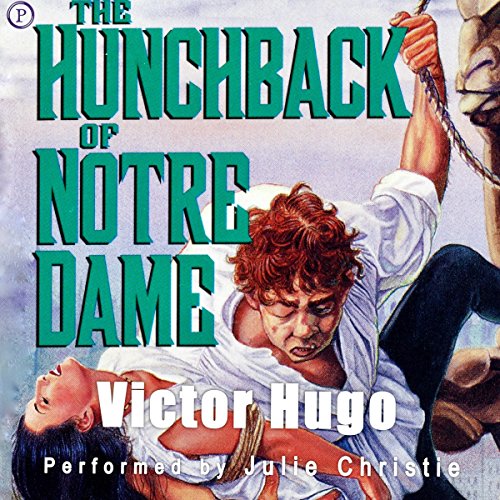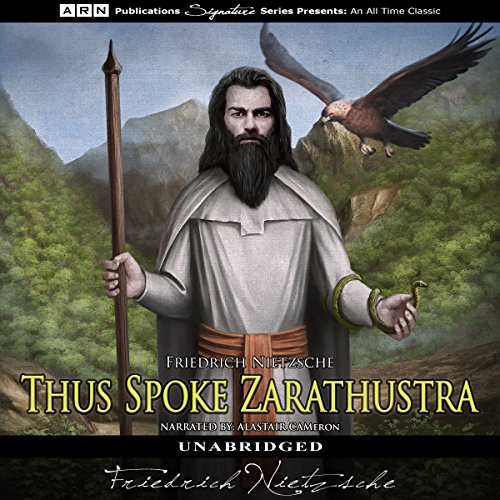Utopia Audiobook by Thomas More
Update: 2017-09-15
Description
Please open https://hotaudiobook.com ONLY on your standard browser Safari, Chrome, Microsoft or Firefox to download full audiobooks of your choice for free.
Title: Utopia
Author: Thomas More
Narrator: Alastair Cameron
Format: Unabridged
Length: 4 hrs and 3 mins
Language: English
Release date: 09-15-17
Publisher: A.R.N. Publications
Ratings: 5 of 5 out of 11 votes
Genres: Classics, European Literature
Publisher's Summary:
First published in 1516, Utopia creates a vision of the perfect society. Thomas More was the first great thinker to bring the idea of a utopian society to the forefront of western thought. More's Utopia is considered to be one of the most influential works in western literature, introducing the idea that all men are created equal and should be treated with equal respect.
Within Utopia, the listener is taken to an island where there is an idealistic community with complete social harmony. In Utopia, the community owns all property and everyone works and contributes to society which has a balance of religious and social tolerance. Throughout history, Thomas More's Utopia has been the inspiration of many social movements. Although many of More's critics believe this type of utopia to be unachievable in human societies, his work does paint a picture of what life could be like if it were possible.
Members Reviews:
Even with Illustrations, This Book Primarily for Interested Historians
In a classic what-was-I-thinking moment, I purchased âUtopia,â a 600-year-old book billed on Amazon as a ââfiction and socio-political satire.â I am two-thirds of the way through the book, and I am guessing that satire meant something else in the early 1500s.
The book actually reads as a long-winded, mostly one-sided conversation, almost like reading ancient philosophy. As I plowed further and further into the book, I began to create furrows of my own. While I suppose it is unfair to inject todayâs world into (the not yet Sir) Thomas Moreâs creation, it was too tempting to ignore the opportunity. Almost.
The book talks about Utopia, an island protected from the outside world by natural boundaries that would give the most seasoned sailor pause. All the sins and temptations of the world are ignored or ridiculed here, a world where everyone works (including doing their turn at the farm), plays, studies, and even is given at least eight hours of time to sleep. Anyone who breaks the law becomes a slave, and performs the menial work for the rest of the populace.
Today, we might view this combination of socialism/communism/slavery as something abhorrent, or at least an impossibility. There are many parts of this perfect society which would not make sense today, although it was tempting to consider that Utopia had no lawyersâor wouldnât that make sense, either? Hmmâ They also condoned state-sanctioned suicide, meaning as long as you received permission from the powers-that-be, it was okay to poison yourself. Or starve yourself. Or whatever worked.
While this book could have been considered controversial by 16th Century standards and brushes up alongside treason (the opening bits of king-praising were probably a life-saving requirement), the presentation in todayâs world is a bit quaint at best and best suited primarily for those who are students of history or of Sir Thomas More. As a historical piece of literature, I would give it five stars. Judged against 16th Century readers, it is a fantasy that can only be wished for; for modern readers, a tough slog that causes more questions to emerge than the potential problems it hopes to solve. Three stars.
Need to mention, this illustrated version is not worth the price, which also had a bearing on the final decision of three stars.
Title: Utopia
Author: Thomas More
Narrator: Alastair Cameron
Format: Unabridged
Length: 4 hrs and 3 mins
Language: English
Release date: 09-15-17
Publisher: A.R.N. Publications
Ratings: 5 of 5 out of 11 votes
Genres: Classics, European Literature
Publisher's Summary:
First published in 1516, Utopia creates a vision of the perfect society. Thomas More was the first great thinker to bring the idea of a utopian society to the forefront of western thought. More's Utopia is considered to be one of the most influential works in western literature, introducing the idea that all men are created equal and should be treated with equal respect.
Within Utopia, the listener is taken to an island where there is an idealistic community with complete social harmony. In Utopia, the community owns all property and everyone works and contributes to society which has a balance of religious and social tolerance. Throughout history, Thomas More's Utopia has been the inspiration of many social movements. Although many of More's critics believe this type of utopia to be unachievable in human societies, his work does paint a picture of what life could be like if it were possible.
Members Reviews:
Even with Illustrations, This Book Primarily for Interested Historians
In a classic what-was-I-thinking moment, I purchased âUtopia,â a 600-year-old book billed on Amazon as a ââfiction and socio-political satire.â I am two-thirds of the way through the book, and I am guessing that satire meant something else in the early 1500s.
The book actually reads as a long-winded, mostly one-sided conversation, almost like reading ancient philosophy. As I plowed further and further into the book, I began to create furrows of my own. While I suppose it is unfair to inject todayâs world into (the not yet Sir) Thomas Moreâs creation, it was too tempting to ignore the opportunity. Almost.
The book talks about Utopia, an island protected from the outside world by natural boundaries that would give the most seasoned sailor pause. All the sins and temptations of the world are ignored or ridiculed here, a world where everyone works (including doing their turn at the farm), plays, studies, and even is given at least eight hours of time to sleep. Anyone who breaks the law becomes a slave, and performs the menial work for the rest of the populace.
Today, we might view this combination of socialism/communism/slavery as something abhorrent, or at least an impossibility. There are many parts of this perfect society which would not make sense today, although it was tempting to consider that Utopia had no lawyersâor wouldnât that make sense, either? Hmmâ They also condoned state-sanctioned suicide, meaning as long as you received permission from the powers-that-be, it was okay to poison yourself. Or starve yourself. Or whatever worked.
While this book could have been considered controversial by 16th Century standards and brushes up alongside treason (the opening bits of king-praising were probably a life-saving requirement), the presentation in todayâs world is a bit quaint at best and best suited primarily for those who are students of history or of Sir Thomas More. As a historical piece of literature, I would give it five stars. Judged against 16th Century readers, it is a fantasy that can only be wished for; for modern readers, a tough slog that causes more questions to emerge than the potential problems it hopes to solve. Three stars.
Need to mention, this illustrated version is not worth the price, which also had a bearing on the final decision of three stars.
Comments
In Channel




![El Fantasma de la Ópera [The Phantom of the Opera] Audio Libro por Gastón Leroux El Fantasma de la Ópera [The Phantom of the Opera] Audio Libro por Gastón Leroux](https://m.media-amazon.com/images/I/51QVBouNUeL._SL500_.jpg)

![La vida de Lazarillo de Tormes, y de sus fortunas y adversidades [The Life of Lazarillo de Tormes and of His Fortunes and Adversities] Audio Libro por Escucha Libros S.L.N.E. La vida de Lazarillo de Tormes, y de sus fortunas y adversidades [The Life of Lazarillo de Tormes and of His Fortunes and Adversities] Audio Libro por Escucha Libros S.L.N.E.](https://m.media-amazon.com/images/I/61rup8BXL5L._SL500_.jpg)






![- [The Diary of Anne Frank] Audiobook by Anne Frank - [The Diary of Anne Frank] Audiobook by Anne Frank](https://m.media-amazon.com/images/I/51JMnfymJ1L._SL500_.jpg)










